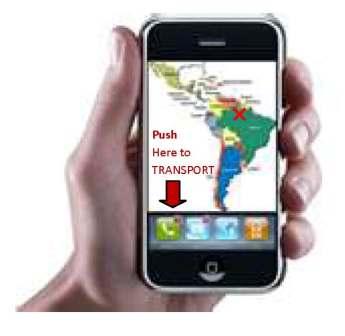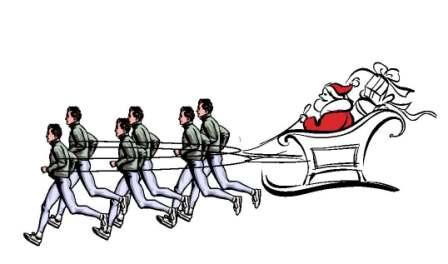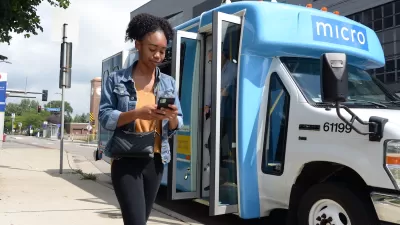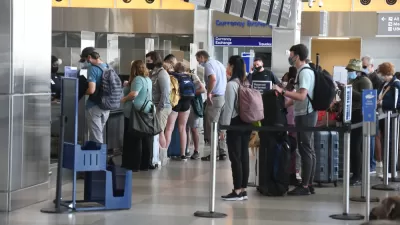A friend of mine who's a biophysicist popped in to see me the other day. He was all excited and showed me his “patent pending” letter for his newest invention.
A friend of mine who's a biophysicist popped in to see me the other day. He was all excited and showed me his "patent pending" letter for his newest invention. He was seeking help in deploying his new iPhone app. He had inquired about government grants, but was summarily dismissed as he explained his new transportation solution would eliminate thousands of transportation jobs. And the whole concept of shovel ready didn't make much sense to him as his project only required some software and a new low cost computer chip.
He said he explained to the bureaucrat that his iPhone app would revolutionize transportation and provide phenomenal increases in productivity and improvements to quality of life. No emissions, no GHG, no accidents, but no jobs either. It wouldn't stimulate development around stations because there would be no need for stations.
No jobs, - the bureaucrats weren't interested – therefore no money.
He couldn't understand the infatuation with jobs - everybody knows the most efficient and productivity enhancing transportation investments require less jobs, not more jobs. So why would evaluators be equating benefits with job creation?

I explained to my colleague that we are in a strange new world. The fundamental benefits of mobility have faded in significance as our metrics for evaluating transportation investments are more focused on responding to the political issue du jour. If he wanted any help in deploying a transportation solution he'd somehow need to create lots and lots of jobs.
He briefly pondered my advice and said he would be back with an alternative strategy. He had an idea that was snow shovel ready, would be very good for everyone's health and would create lots of jobs.

Merry Christmas and Happy Holidays.

Alabama: Trump Terminates Settlements for Black Communities Harmed By Raw Sewage
Trump deemed the landmark civil rights agreement “illegal DEI and environmental justice policy.”

Study: Maui’s Plan to Convert Vacation Rentals to Long-Term Housing Could Cause Nearly $1 Billion Economic Loss
The plan would reduce visitor accommodation by 25% resulting in 1,900 jobs lost.

Planetizen Federal Action Tracker
A weekly monitor of how Trump’s orders and actions are impacting planners and planning in America.

Waymo Gets Permission to Map SF’s Market Street
If allowed to operate on the traffic-restricted street, Waymo’s autonomous taxis would have a leg up over ride-hailing competitors — and counter the city’s efforts to grow bike and pedestrian on the thoroughfare.

Parklet Symposium Highlights the Success of Shared Spaces
Parklets got a boost during the Covid-19 pandemic, when the concept was translated to outdoor dining programs that offered restaurants a lifeline during the shutdown.

Federal Homelessness Agency Places Entire Staff on Leave
The U.S. Interagency Council on Homelessness is the only federal agency dedicated to preventing and ending homelessness.
Urban Design for Planners 1: Software Tools
This six-course series explores essential urban design concepts using open source software and equips planners with the tools they need to participate fully in the urban design process.
Planning for Universal Design
Learn the tools for implementing Universal Design in planning regulations.
Caltrans
Smith Gee Studio
Institute for Housing and Urban Development Studies (IHS)
City of Grandview
Harvard GSD Executive Education
Toledo-Lucas County Plan Commissions
Salt Lake City
NYU Wagner Graduate School of Public Service





























